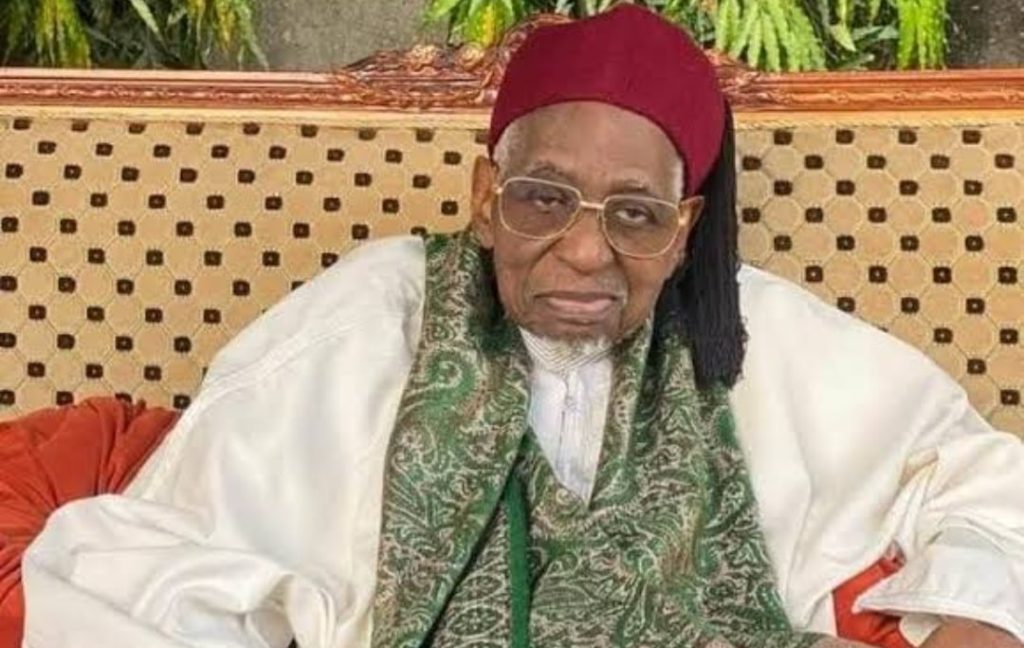Ongoing Investigation into Air Peace
The Federal Competition and Consumer Protection Commission (FCCPC) and Air Peace, one of Nigeria’s leading airlines, are embroiled in a contentious inquiry into allegations of exploitative pricing practices and consumer rights violations. This inquiry comes amid accusations that Air Peace has been inciting other airlines to raise fares while also engaging in arbitrary flight cancellations without adequate compensation to passengers.
Minister of Aviation Reacts
The Minister of Aviation and Aerospace Development, Festus Keyamo, has criticized the FCCPC’s approach, calling their statements “careless” and suggesting a lack of coordination with the Nigerian Civil Aviation Authority (NCAA). Speaking to ARISE NEWS, Keyamo emphasized the NCAA’s primary role in regulating the aviation industry, particularly pricing mechanisms.
Keyamo stated, “The power to regulate these airlines and their price structures lies with the NCAA. The FCCPC should have engaged with the NCAA to review the data and context behind pricing decisions. We are grappling with challenges like aircraft acquisition capacity and the impact of forex fluctuations, which heavily influence aviation costs.”
Background of the Dispute
The controversy began when reports emerged that the FCCPC had launched an inquiry into consumer complaints against Air Peace. The complaints included poor service delivery, arbitrary fare hikes, and lack of transparency. During a December 3 meeting between the FCCPC and Air Peace representatives in Abuja, the commission received numerous petitions alleging exploitative practices. While the FCCPC initially chose to conduct the session privately, subsequent media leaks suggested Air Peace was not under investigation, a claim the commission later refuted.
FCCPC’s Position
In a detailed statement, FCCPC’s Director of Corporate Affairs, Ondaje Ijagwu, reiterated the seriousness of the allegations, stating that the inquiry was a response to consumer grievances. The commission’s mandate under the Federal Competition and Consumer Protection Act (FCCPA) empowers it to ensure fair pricing and prevent exploitative practices across all sectors, including aviation.
Ijagwu explained, “Passengers are consumers of Air Peace’s services, and their rights are inalienable. The inquiry stems from complaints about fare increases, lack of transparency, and arbitrary flight cancellations. It is within the FCCPC’s jurisdiction to investigate and act against any pricing practices deemed unfair or exploitative.”
Allegations Against Air Peace
The complaints against Air Peace include:
- Exploitative Pricing:
- Petitioners allege unjustified fare increases for advance bookings on domestic routes.
- Air Peace has suggested that fares between N500,000 and N700,000 per one-hour domestic flight are “ideal,” drawing criticism from consumers and competitors alike.
- Arbitrary Flight Cancellations:
- Passengers have accused the airline of canceling flights without compensation or adequate care.
- Reports of a four-hour delay on November 29 at Abuja’s Nnamdi Azikiwe International Airport led to passenger unrest, requiring intervention from security agents.
- Surcharge for Rescheduled Flights:
- Consumers have reported being forced to pay a 50% surcharge to use their tickets on another day after experiencing cancellations or delays.
- Incitement of Fare Hikes:
- Some petitioners claim Air Peace has encouraged smaller airlines to raise fares, creating an uncompetitive market environment.
FCCPC’s Legal Basis
The FCCPA grants the FCCPC the authority to investigate and address pricing practices that violate consumer rights or disrupt fair competition. Specifically:
- Section 17(e): Empowers the FCCPC to conduct inquiries deemed necessary in connection with any matter under its jurisdiction.
- Section 127(1)(a): Prohibits unfair, unreasonable, or unjust pricing practices.
- Section 148(3)(c): Authorizes the commission to investigate consumer complaints swiftly.
Ijagwu added, “No undertaking shall offer goods or services at a price or on terms that are manifestly unfair. Our inquiry into Air Peace aims to ensure that Nigerian passengers are not exploited through price-fixing or gouging.”
Air Peace’s Defense and Counterclaims
At a press conference in Lagos, Air Peace defended its pricing, citing operational costs as justification. The airline claimed it spends N7 million on fuel for a one-hour flight with a Boeing 737-500, contradicting consumer assertions that the cost is closer to N4 million. The airline also accused the FCCPC of exceeding its jurisdiction, arguing that only aviation regulatory bodies like the NCAA have the authority to review airline operations.
Public Sentiment and Consumer Rights
Consumer groups have expressed support for the FCCPC’s inquiry, emphasizing the importance of protecting passenger rights. The commission’s investigation has highlighted broader issues in Nigeria’s aviation industry, including transparency, accountability, and affordability.
One consumer advocate noted, “The FCCPC’s actions are a necessary step towards addressing systemic issues in the aviation sector. Passengers deserve clarity on pricing and fair treatment, especially given the significant financial burdens of air travel.”
Conclusion
As the inquiry continues, the tension between the FCCPC, Air Peace, and the Ministry of Aviation underscores the complexities of balancing consumer protection with the operational realities of the aviation industry. The FCCPC has reaffirmed its commitment to ensuring fairness and transparency, while Air Peace insists on its right to set prices based on market conditions. The outcome of this investigation will likely have far-reaching implications for consumer rights and competition in Nigeria’s aviation sector.













